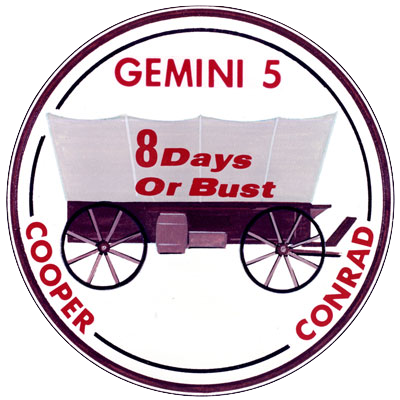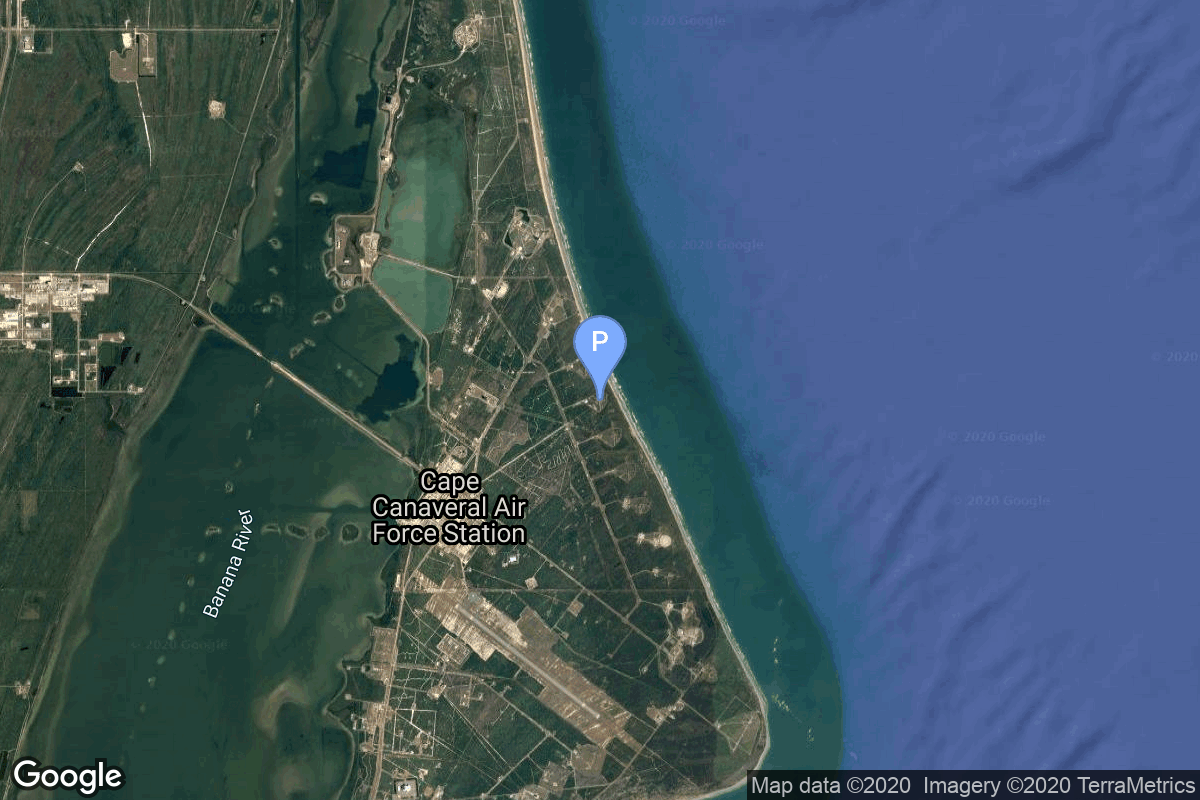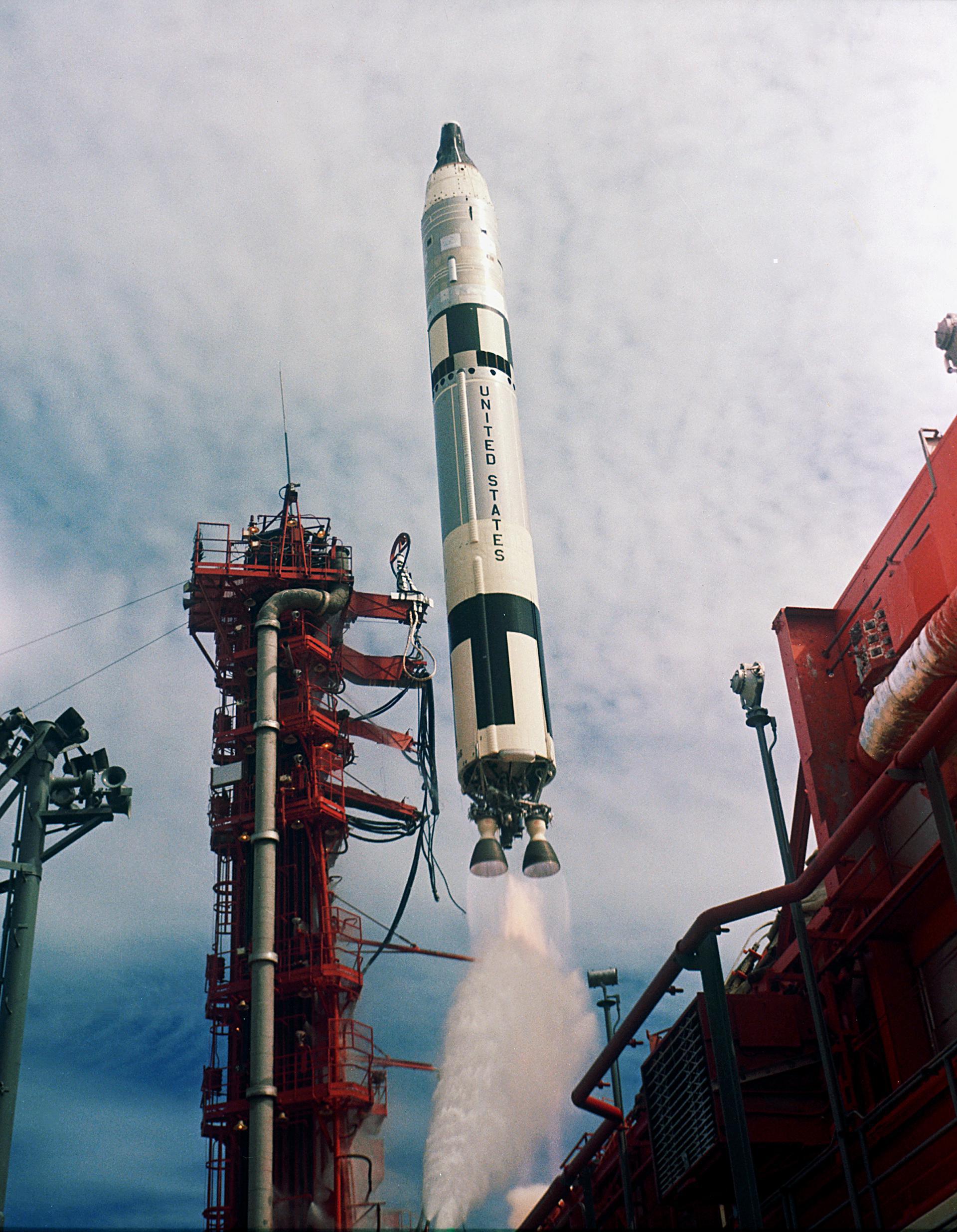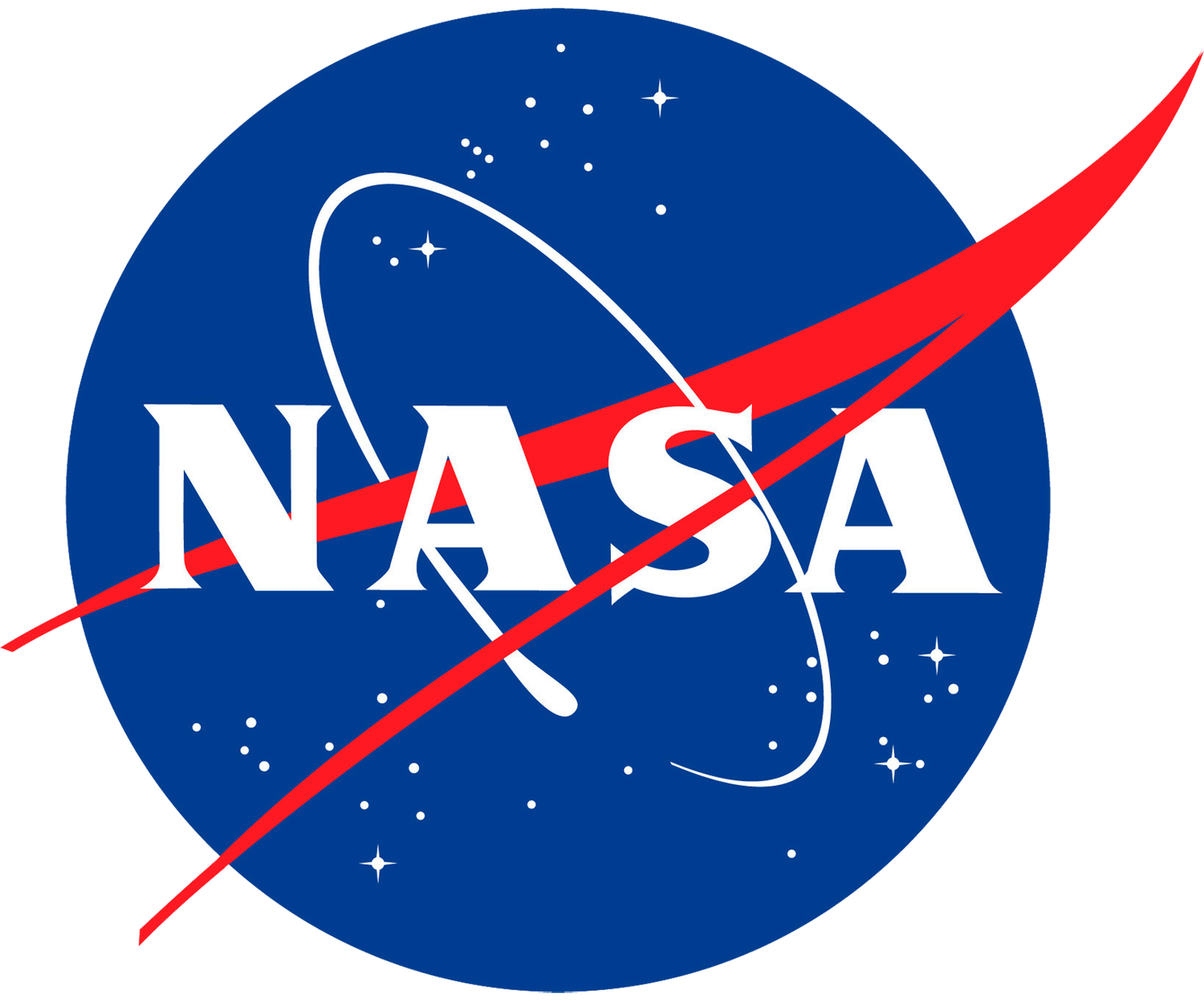Gemini V
Titan II GLV
National Aeronautics and Space Administration
Crew
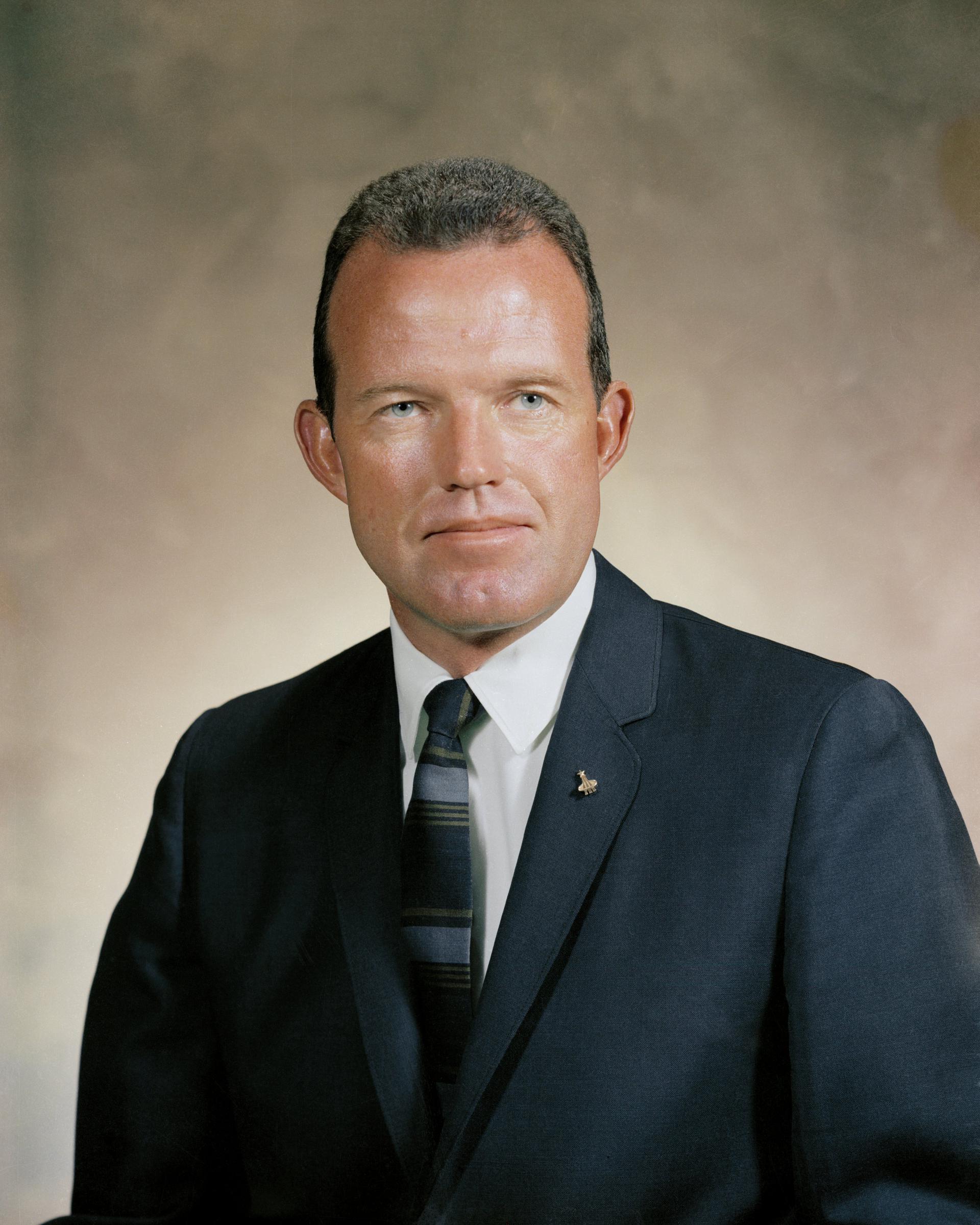
Gordon Cooper
- Birthday: 03/06/1927
- Role: Command Pilot
- Nationality: American
- First Flight: 05/15/1963
- Last Flight: 08/21/1965
Leroy Gordon “Gordo” Cooper Jr. was an American aerospace engineer, test pilot, United States Air Force pilot, and the youngest of the seven original astronauts in Project Mercury, the first manned space program of the United States.
Cooper piloted the longest and final Mercury spaceflight in 1963. He was the first American to sleep in space during that 34-hour mission and was the last American to be launched alone to conduct an entirely solo orbital mission. In 1965, Cooper flew as Command Pilot of Gemini 5.
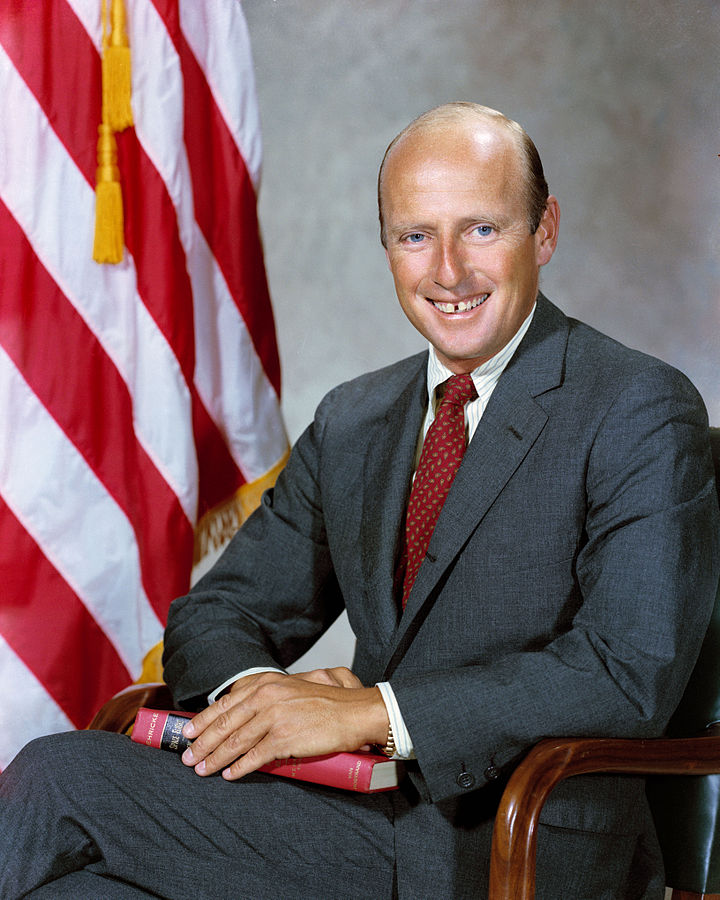
Pete Conrad
- Birthday: 06/02/1930
- Role: Pilot
- Nationality: American
- First Flight: 08/21/1965
- Last Flight: 05/25/1973
Charles “Pete” Conrad Jr. was an American NASA astronaut, aeronautical engineer, naval officer and aviator, test pilot, and during the Apollo 12 mission became the third man to walk on the Moon. Conrad was selected in NASA’s second astronaut class.
Mission
Gemini V (Gemini 5)
- Type: Human Exploration
- Orbit: Low Earth Orbit
Gemini 5 was the third crewed mission of the NASA’s Project Gemini. The mission was commanded by Command Pilot L. Gordon Cooper, Jr. and Pilot Charles “Pete” Conrad, Jr. The mission began on August 21, 1965, 13:59:59 UTC and ended on August 29, 1965, 12:55:13 UTC.
Location
Rocket
National Aeronautics and Space Administration Titan II GLV
The Titan II GLV (Gemini Launch Vehicle) or Gemini-Titan II was an American expendable launch system derived from the Titan II missile, which was used to launch twelve Gemini missions for NASA between 1964 and 1966. Two unmanned launches followed by ten manned ones were conducted from Launch Complex 19 at the Cape Canaveral Air Force Station, starting with Gemini 1 on April 8, 1964.
Agency
National Aeronautics and Space Administration
The National Aeronautics and Space Administration is an independent agency of the executive branch of the United States federal government responsible for the civilian space program, as well as aeronautics and aerospace research. NASA have many launch facilities but most are inactive. The most commonly used pad will be LC-39B at Kennedy Space Center in Florida.
